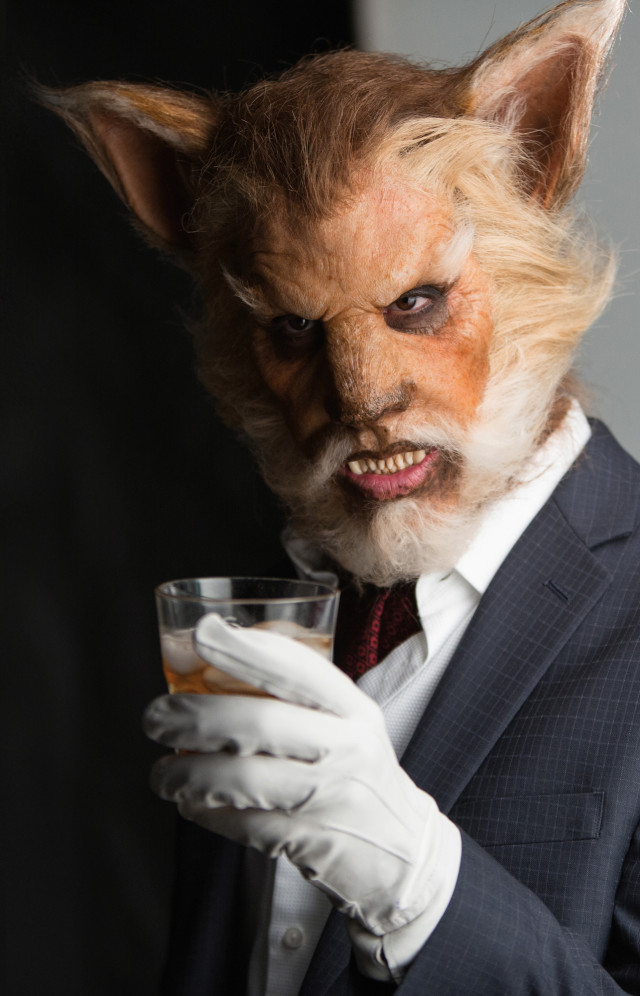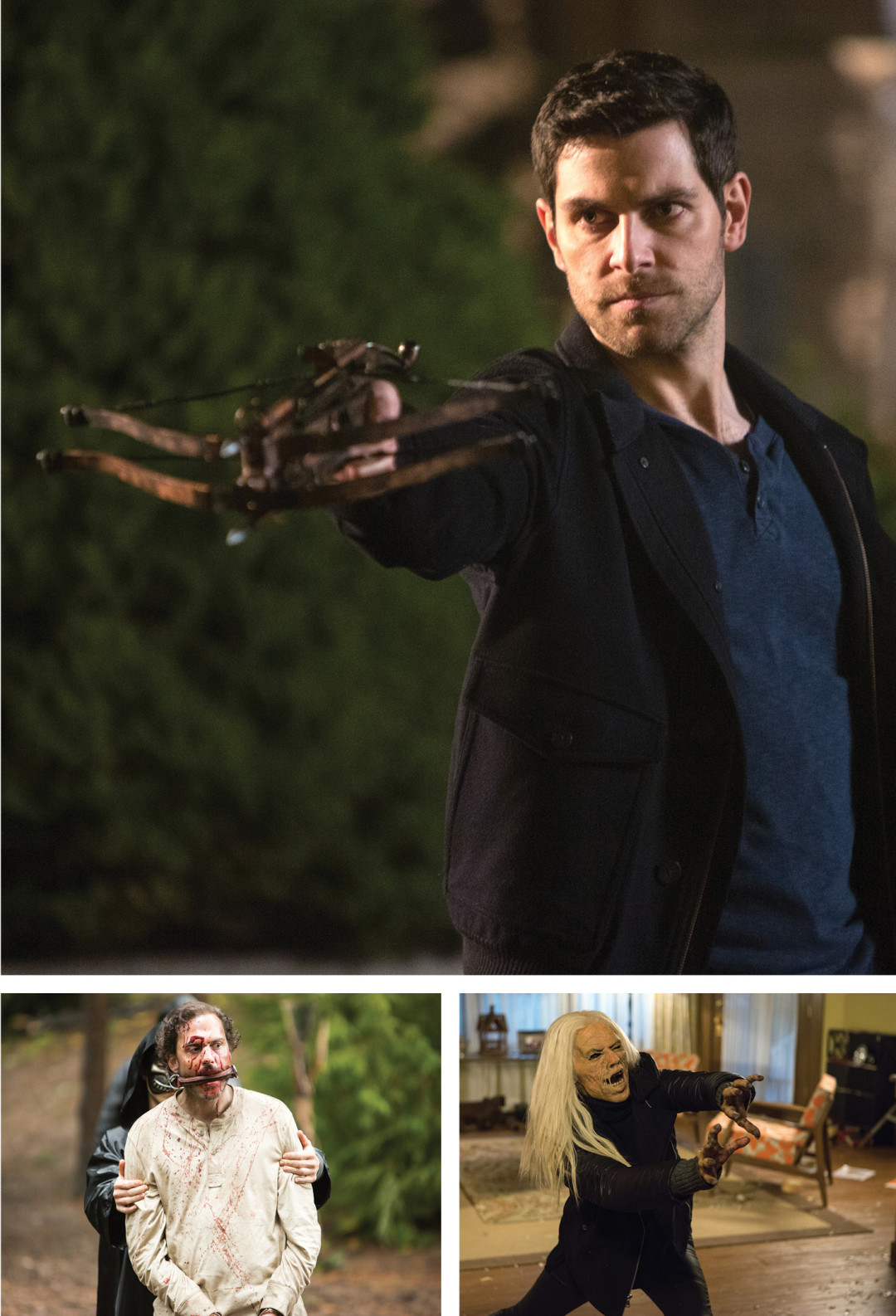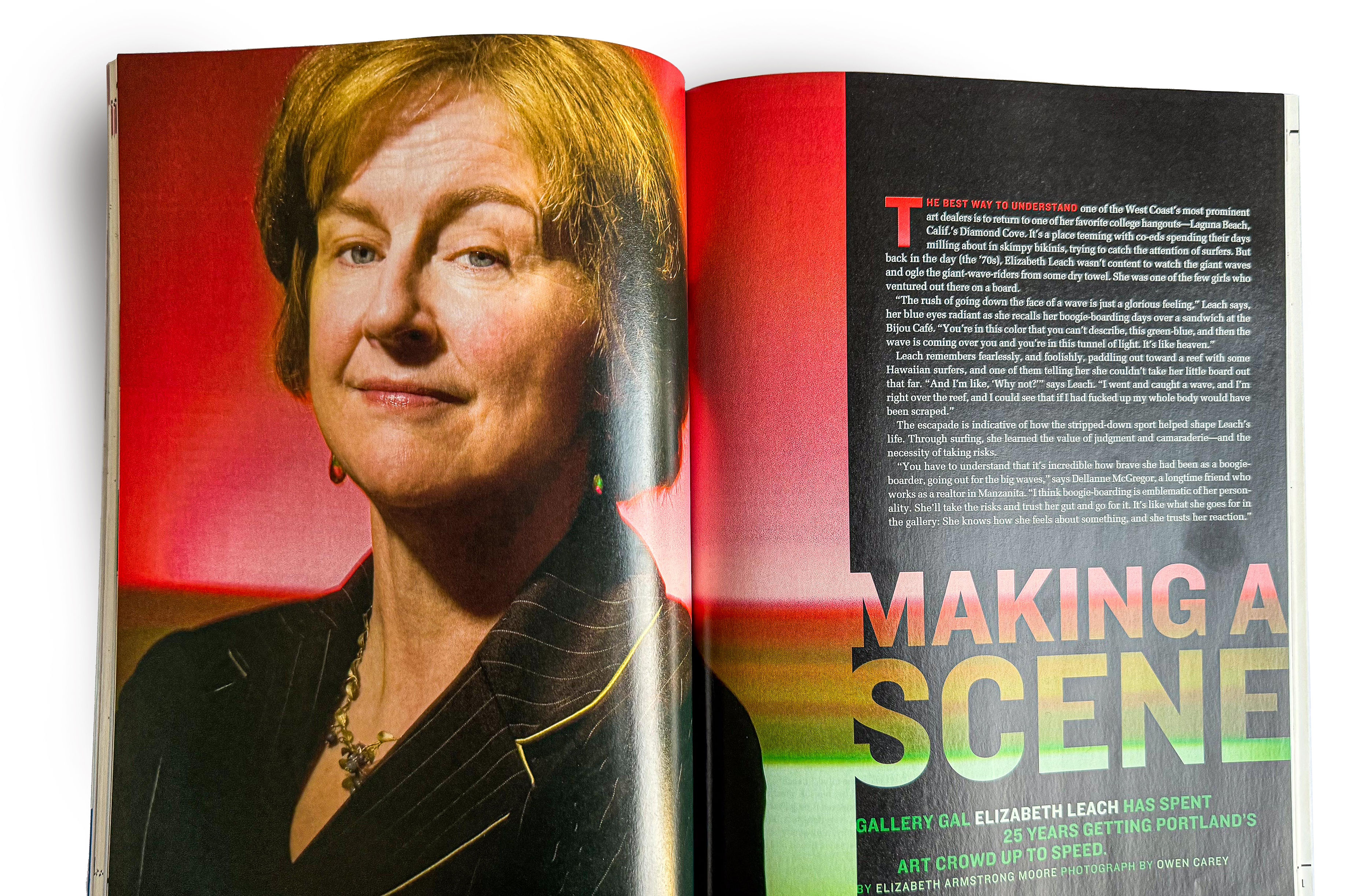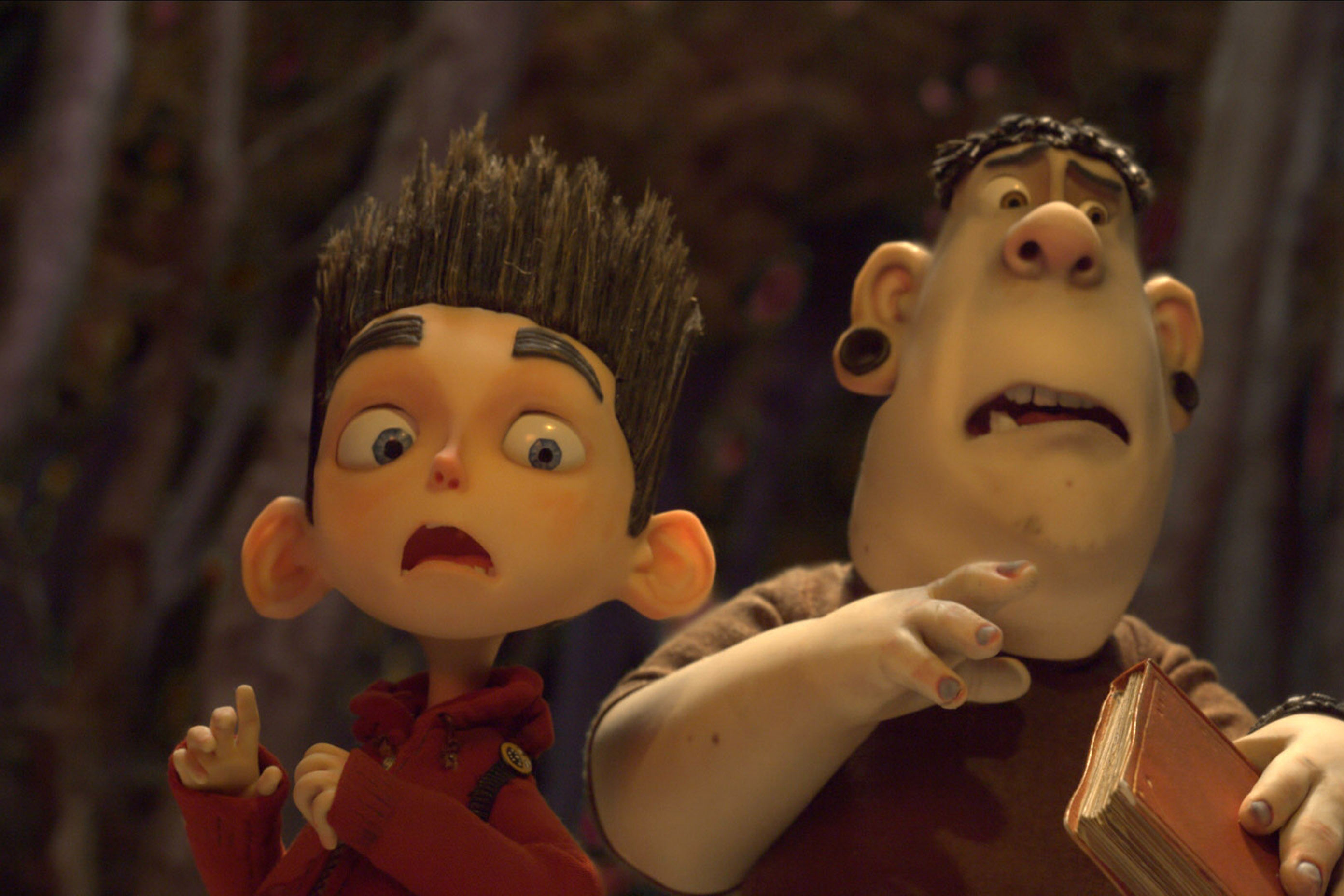How Portland's Grimm Took Over Friday-Night Television

Mark Bloom as a Luison, one of Grimm’s wolf-like creatures
Image: NBC
A police detective who wields crossbows and medieval cudgels. A vegetarian werewolf clock repairman. A police captain possessed by the spirit of Jack the Ripper. A grand conspiracy involving magic Greek coins and a series of keys dating back to the Crusades. The details sound like outtakes from a Dan Brown novel or a no-budget made-for-Syfy movie rather than the plot elements of NBC’s second-longest-running drama.
Yet that’s exactly what Grimm has become for the network. (Law and Order: SVU holds the top spot.) Despite an out-there premise and out-of-the-way time slot, the show set in and shot all over Portland returns this month for its fifth season, still telling the story of police detective/supernatural warrior Nick Burkhardt (David Giuntoli) and his struggle against the half-monster Wesen who secretly prey upon the residents of his city. As a setup, it borders on the ridiculous. Yet Grimm averages 5 million viewers on Friday nights, attracts a devoted online fan base, and in many ways has become a still point in the ever-turning world of network TV.
That strange juxtaposition of weirdness—no question, it’s a weird show—and normalcy, at least of some kind, goes some way toward explaining Grimm’s success. In what’s ostensibly a police procedural, plotlines obey the familiar rhythms of every other show that depicts cops working their beats through formulaic investigations. But the case-of-the-week structure gets new blood (very literally) from the mythological mash-up that functions as the show’s narrative context.
In 2011, Grimm debuted a fictional world rooted in the Brothers Grimm fairy tales—their original, darker incarnations. Over subsequent years, the show’s internal universe has expanded to include alien abductions, ancient Egypt, and Latin American ghost stories. You know exactly what you’re going to get from an episode of Grimm—and, at the same time, have no idea what to expect. This omnivorous approach to storytelling formulas keeps viewers coming back, generating regular online debate about how well the latest twist fits into the established universe.

CLOCKWISE FROM TOP: David Giuntoli as Det. Nick Burkhardt; Claire Coffee as Adalind, a Hexenbiest; Silas Weir Mitchell as Monroe, a Blutbad
Image: NBC
The cop-show element helps anchor some of the show’s thematic inconsistences: Depending on the week’s featured Wesen, the action can range from dark and chilling to campy and comedic. But the show gets away with this blend in part thanks to its deep bench of characters, all of whom bring something beyond their archetypes. Nick’s Blutbad—that’s a wolf-like Wesen—ally Monroe (Silas Weir Mitchell) frequently provides comic relief, but he’s also a deeply complicated character: a carnivore shying away from his impulses in an interspecies marriage with Fuchsbau werefox Rosalee (Bree Turner). Similarly, Captain Renard (Sasha Roiz), Nick’s commanding officer, has his own agenda and allegiances, lending an ambiguity to his actions that edges him into antagonist territory.
And as Grimm progresses, it pursues a more ambitious agenda than a run-of-the-mill police procedural. While its central storyline is often needlessly complicated—royal families, resistances, and Wesen councils that require a flowchart to understand how they’re connected—the show succeeds because it packs a primal punch, exploring the dark psychological territory that comes with the fairy tales that feed it. The Wesen are simultaneously men and monsters, their bestial forms often little more than an excuse to exercise impulses denied expression by their human sides.
That darkness became ever more apparent in season 4’s finale, a game-changer with the show’s most significant body count yet. (Spoiler alert: Nick’s former girlfriend Juliette transformed from sweet romantic foil into a Hexenbiest (a witch Wesen) and finally met her death, making her the first main character to be killed off in the show’s run). The writers, led by creators David Greenwalt and Jim Kouf, seem determined to double down on this dark direction, having spent the past few months promising an even blacker storyline for the hotly anticipated fifth season. And while that may not sound so good for Nick, Monroe, and company, that possibility promises to place this gritty real-life-drama-spun-as-fairy-tale right where it works best: a long way from “happily ever after.”
Portland-based writer Les Chappell covers television for the A.V. Club.




